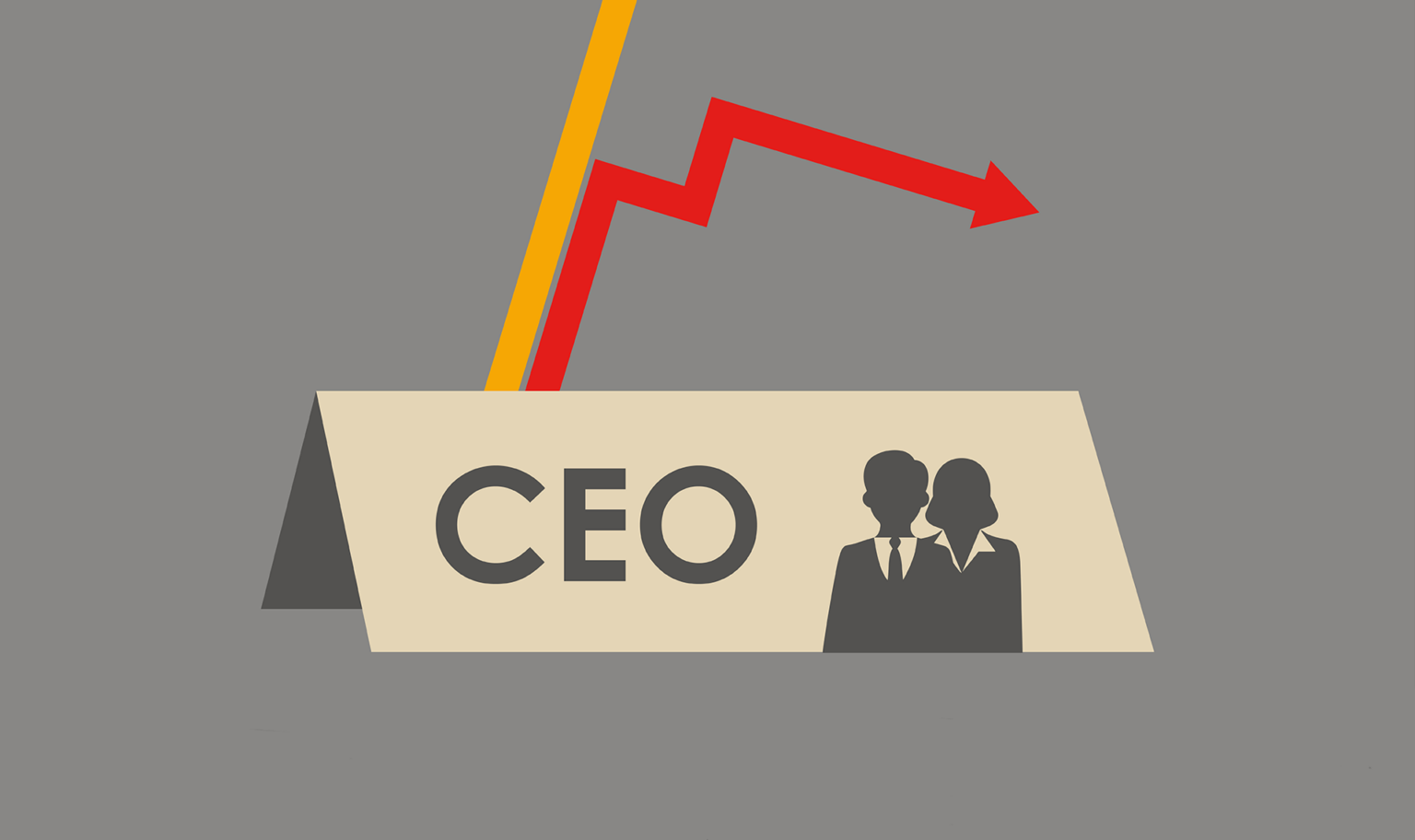by Tim Clouting
In a recent conversation I had with a senior executive of a successful, sizable global organisation, we were discussing the five strong years of consistent profit and share price growth of his organisation and the rightful plaudits coming the way of the CEO.
Interestingly however, the senior executive’s view was that actually the very short-term, cost-focused mindset that dictated much of the decision making, which had been core to their initial success, was in danger of significantly harming the organisation. The cost-cutting had gone too far, the efficiency drives were not sustainable, the business was creaking at the seams, customer feedback was turning negative, customer focus was virtually non-existent, the business had been starved of investment, tech systems were woeful, people felt undervalued, innovation was minimal.
On the surface, a healthy business going in the right direction with happy shareholders, but one that was likely heading for a fall whenever the new CEO came in. With this as the context, at a recent boardroom lunch for Chairmen, CEOs and Investors across the Leisure & Hospitality sector we asked:
- When has the CEO in question done a good job?
- In this fast-changing and disruptive world, where tenure of CEOs is getting ever shorter, can you only be measured against the job you do while your hand is on the tiller, or do you need to leave a legacy of sustainable profit growth not just focused on today’s results?
- Ultimately, is the role of CEO (or Chairman or NED) becoming more difficult/challenging with each passing year?
Most guests agreed that the role of CEO was becoming ever more complex and challenging. One guest talked about the issue of “job intensification”, which, partly through the intrusive use of more technology, and partly due to the rapid nature of change, was not only impacting the sector and shopping habits, but also the organisation at all levels, from the NED and CEO down to the front-line worker.
Alternative success
A serial NED who sits on the board of half a dozen organisations straddling a number of sectors talked about the need for the CEO to demonstrate moral leadership, not just financial leadership. We asked whether moral leadership was rewarded in today’s corporate sphere, albeit we did not really get to a firm conclusion. She felt the best CEOs were always able to stand for something over and above their financial results. The best CEO’s in her opinion always balanced the needs of all shareholders, encompassing employees and customers and the community at large, albeit with the average CEO tenure becoming ever shorter, this was becoming more and more challenging, specifically for new CEOs.
“The CEO role can be a thankless job, there are more scars than trophies. You must motivate yourself, your employees and partners no matter the financial obstacles and ensure the integrity of the business. Praise must always be distributed for great work and you personally accept all errors in strategy, judgment or performance.”
When we asked our guests from the world of private equity, they of course were interested in the legacy they could build (after all, selling a “good” business was good for business), albeit they made the point that if they typically held an investment for four years, the targets, KPIs and focus of the senior team were of course going to be different to those of a family-run business that had been in existence for 100 years. Therefore, it was important for owners/shareholders/CEOs to be aligned on what success might look like. If you couldn’t agree or find a happy middle-ground, it was necessary to part ways, as all stakeholders have to be focused on the same outcome.
Financial success
The Chairman of an online travel organisation talked about how executive rewards – bonus, share awards and equity – were all geared towards financial success, so it was no wonder that informed the behaviour of the CEO, the senior team and the wider organisation. Unless rewards were restructured to be focused on longer-term results, people would perform and act in the same way.
An NED and ex CEO of a FTSE 100 commented that during his tenure, and despite excellent share price and profit growth throughout his time in the hot-seat, he often had the lingering feeling that there was always more he should be doing (and that he should also be doing things consistently better), in his darker moments questioning his own leadership credentials. Given the size and complexity of the organisation’s global footprint, he also couldn’t shake the feeling that he was losing touch with the day-to-day workings of your company. He made the comment that receiving solid information became more difficult because immediately upon appointment, the dynamic of the relationships he had with his old peers invariably changed. Some former peers who used to constitute an informal channel—those who really knew what was happening at the ground level— were more guarded in their appraisals, wary of delivering bad news, with individual agendas sometimes colouring the information that he received. No matter how much work was put in to instilling an open, trusting and supportive culture, human-nature for self-preservation or progression often muddied true transparency.
One attendee made the interesting comment that CEOs often mistakenly believe that their primary responsibility is to keep the shareholders happy, given that shareholder value has been the mantra that has defined corporate goals/success for many years. However, the problem is that defining one’s goal as shareholder approval may not be in the company’s best interest. Actions and strategies favoured by shareholders (and analysts) may not benefit the ultimate competitive position of the company. Shareholders come and go, and they care only about what happens to the stock during the period they expect to own it. In fact, a lot of shareholders and analysts were prone to take a relative short-term view, while the best CEOs need to concern themselves with creating sustainable economic value.
Shareholder alignment
Instead of looking to shareholders for strategic direction, the CEO must develop and articulate a clear strategy to distinguish the company from others and address industry fundamentals. A key facet of the CEO role was to sell the strategy and shape how analysts and shareholders look at the company. CEOs should not expect that their strategies will be immediately understood or accepted, and a constant stream of reiterations, explanations, and reminders will likely be necessary to affect analysts’ perceptions. Success in this process was often slow. But a CEO with the courage to develop and articulate a sound strategy, even if it was currently unpopular in the City, would eventually attract the right shareholders—those who buy and hold the stock because they believe in the big-picture strategy.
The CEO of a casual dining chain, who had been CEO of both a listed organisation and a privately owned one, both in the UK and overseas, talked about the importance of understanding the true objectives of your owners/shareholders. In a listed entity it was up to the CEO to work with the shareholder groups to clarify the mission, align them behind a vision and then swap them out if they felt if necessary. Working in a large, founder-run business, economic success was obviously always part of the criteria, but often he felt it was as much, if not more, about reputational success. The owners do not want to be embarrassed, so it was important to clarify what they deemed to be “success” – whether that was new stores, out-performing a key competitor, not entering in to a CVA etc. You can then adapt your strategy to match the goals of the founder/owner.
A portfolio Chairman outlined the importance of shareholder alignment between CEO, Chair and private equity owner. Having made the successful transition from CEO of a large global organisation with numerous international divisions, business units and brands, he was surprised by the different dynamics at play within private equity. Having come from a background where logic, strong judgement and business understanding was applied to help maximise economic success, he found that entering the world of PE, more ego’s and personalities became involved. He cited one example of a business he chaired which he could see was ripe for sale – they had good offers for the business from several committed parties, there were numerous clouds on the horizon which were going to put the organisation under significant financial pressure in the years ahead, but the PE owners refused to sell. The issue of where the fund was in its maturity/performance, their lack of other strong businesses in their portfolio, the ego (and potential greed) involved of the Managing Partner, meant they held on to the business, despite the fact that the valuation was sure to drop in the years ahead, while simultaneously having to pump significant amounts of more money in.
Conclusion
Most participants agreed the role of CEO is becoming more challenging. While it was an honour to become a CEO and it could be hugely rewarding, it also required almost super-human levels of energy, patience and resilience. To just have progressed to the position of CEO was an achievement but staying there, performing consistently over time, was the greatest challenge. There were great financial and emotional rewards for those that got it right, but also significant psychological and physical demands along the way.
Most of the guests felt that the test of how good you really are/were, only really become evident after your departure. The most stellar CEOs leave behind them organizations that succeed and flourish even when successors take over, because those leaders didn’t create followers, they created more leaders.




